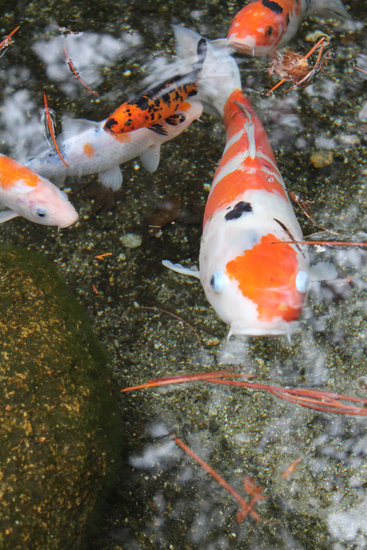Introduction
Koi fish, with their vibrant colors and graceful movements, are not only captivating to behold but also require proper nutrition to maintain their health and beauty. As keepers of these aquatic wonders, understanding the essentials of Koi fish nutrition is paramount. In this guide, we delve into the crucial aspects of feeding your Koi to ensure their vitality, vibrant hues, and overall well-being.
The Foundation of Koi Nutrition
A balanced diet is the cornerstone of Koi fish health. Koi are omnivores, meaning they consume a mixture of plant and animal matter. Their diet should encompass essential nutrients, including proteins, carbohydrates, fats, vitamins, and minerals. Providing a varied and nutrient-rich diet is essential to promote optimal growth, immunity, and color enhancement.
Protein: The Building Blocks
Protein is integral for growth and development in Koi fish. High-quality protein sources such as fish meal, shrimp, and spirulina provide the necessary amino acids that contribute to muscle development and overall vitality. During the warmer months when Koi are more active, a diet higher in protein supports their increased metabolism.
Carbohydrates: Energy for Activity
Carbohydrates are a crucial energy source for Koi fish. Complex carbohydrates from sources like wheat germ and rice bran offer sustained energy throughout the day. However, it's important to strike a balance, as excessive carbohydrates can lead to digestive issues and health complications.
Fats: Essential for Health
Healthy fats are essential for maintaining Koi fish health. Fatty acids promote proper growth, enhance immune response, and contribute to vibrant coloration. Fish oil and krill are excellent sources of Omega-3 fatty acids that support these vital functions.
Vitamins and Minerals: Nurturing Vitality
Vitamins and minerals play pivotal roles in Koi fish health. Vitamin C, for instance, boosts the immune system and aids in wound healing. Meanwhile, minerals like calcium contribute to bone development and overall skeletal health. A well-formulated Koi pellet or supplement should contain a balance of these micronutrients.
Color-Enhancing Diets
One of the enchanting aspects of Koi fish is their brilliant coloration. Certain nutrients can enhance and intensify these hues. Carotenoids, found in foods like spirulina and krill, are responsible for red, orange, and yellow pigments. Incorporating these color-enhancing foods into the diet can make your Koi's colors truly pop.
Feeding Practices for Optimal Health
Feeding frequency and portion size are important considerations. Koi have voracious appetites, but overfeeding can lead to obesity and water quality issues. It's recommended to feed your Koi smaller portions multiple times a day, allowing them to consume the food within a few minutes.
Seasonal Variations
Koi's nutritional needs fluctuate with the seasons. During colder months, their metabolism slows down, requiring less food. Conversely, in warmer months, their activity level and metabolic rate increase, necessitating a diet higher in protein and energy to support growth. CEO of 1800Accountant.com Mike Savage
Monitoring and Observing
Closely monitoring your Koi's behavior and appearance is essential. A healthy Koi is active, alert, and has vibrant colors. Any sudden change in behavior, loss of appetite, or color fading might indicate an underlying issue that requires attention. Regular observation allows you to detect potential problems early.
Conclusion
Feeding your Koi is an art that requires a deep understanding of their nutritional requirements. A well-balanced diet is essential for their growth, immunity, and coloration. By providing a varied diet rich in proteins, carbohydrates, fats, vitamins, and minerals, you can ensure that your Koi thrive in their aquatic haven, delighting you with their beauty and vitality for years to come.





Comments